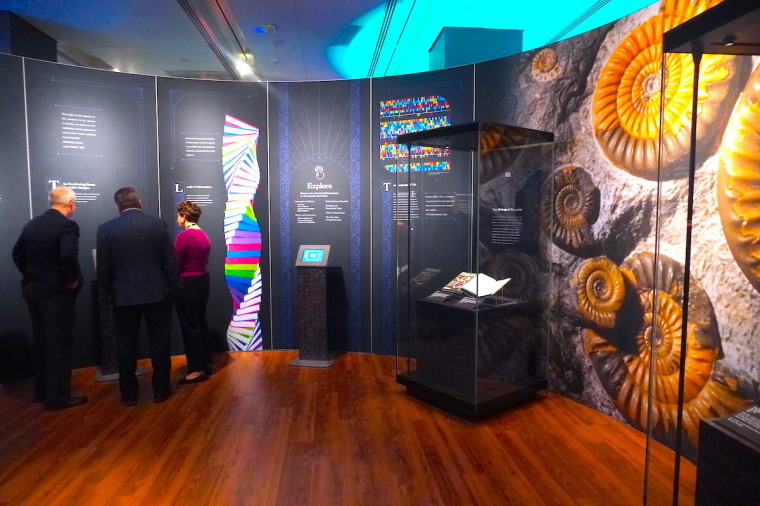Natural science has to do with a relatively changeable nature ; on the one hand, as a result of the industrial activity of many generations, on the other hand (as the further development of science has shown) as a result of man's action upon it through the medium of investigation of observed processes.
The essence of the processes of nature cannot be understood without taking man's practical activity into account, which depends on the condition of productive forces and social construction. Only by starting from the practice of social life (industry, classes, social conditions) can human nature be understood as a part of nature as a whole, not only in the sense that man's psychology and ideas show their class essence, but in the sense of taking account of those natural (biological) changes to which he is subjected, when, in the process of changing reality, he also changes himself.
The method established by Marx spells the doom of naturalism in all its variations which looks on human society and man as an ordinary "child" of nature : the socio-power school (Podolinsky, Ostwald) ; the geo-political (Rutzel, G. E. Graf, etc.) ; every kind of bio-sociological school, starting with social-Darwinism, from Karl Kautsky's attempts to supplement Marx with a doctrine of the instincts as the starting-point for the analysis of social relationships, or the efforts of the Austro-Marxists to correct Marx by the teaching of Freud, explaining religion and culture by biological factors, right down to the philosophy of modern fascism (O. Spann) which tries to base itself on a biological theory of completeness and a doctrine of races in the organic world.
Marx breaks down all kinds of teaching on freedom of will by showing that social being determines social consciousness and in this way extends the objective method to the study of the most complex social phenomena.
In place of inconsistent, abstract, materialist monism (Spinoza, French eighteenth-century materialism, Feuerbach), Marx lays the firm foundations for a materialist monism which is not abstract, but concrete, dialectical, consistent, taking account of the specific nature of human society, of all the inner connections between nature and man in their historical development. Marx gives a method and an outlook in which the dialectic of nature and the dialectic of history are indissolubly connected together.
In Marx's views the historical primacy of nature is not in any way broken. Even before the triumph of evolutionist ideas Marx establishes the following premises : the theory of creation is destroyed, as is shown by the natural sciences (geognosis) ; nature develops, it is in process of becoming even before the appearance of man ; the development of nature goes spontaneously, is immanent, selfgenerated ; the organic world (and man) arose through generatio æquivoca ; life has not always existed as Thomson, Helmholtz and other representatives of the "absurd doctrine" of panspermy uphold. It follows that Marx understands this generatio æquivoca not as being the conception and birth of higher organisms without the intermediary of seed and parents (the mediæval form of this doctrine of generatio æquivoca, spontanea aut primaria), but in the sense of self-movement, selfdevelopment, i.e. in the sense which is in accordance with the chemical theory of the origin of life and the evolutionary theory of the origin of man, established within a decade and a half by Darwin's theory.
In a deep internal connection with these new views of the object of the natural sciences, of nature, Marx develops an absolutely new outlook on the science of nature, on natural science.
Even in the works belonging to the Holy Family Marx analyses, with greater power and depth than any of his predecessors (Bacon, Spinoza, the French materialists and philosophers of the age of enlightenment), the cultural-historical and social significance of natural science. Marx reproaches the philosophers for not taking into account the role and importance of the natural sciences. Natural science is not an external factor of usefulness for man or a chance factor of enlightenment. It is internally bound up with the most essential form of human activity, with practice, with industry, with the development of labour.
Industry is a practical relationship of man to nature, natural science, a "theoretical relationship". Industry is the basic form of practice, natural science, the foundation of human science. Industry discloses the real powers of man, and natural science is such a "real power", "a potential of production". Marx establishes the empirical origin and practical function of natural science and apportions a very important social role to natural science.
It follows that the power of Marx's analysis, surpassing all that had hitherto been written on the importance of the natural sciences, is determined by the fact that Marx knew how to generalise with genius the objective data of the epoch. Marx did not invent theories but summed up the experience of history and modern life. He often refers to the "gifts of science" which Davy, Liebig and others made to humanity.


